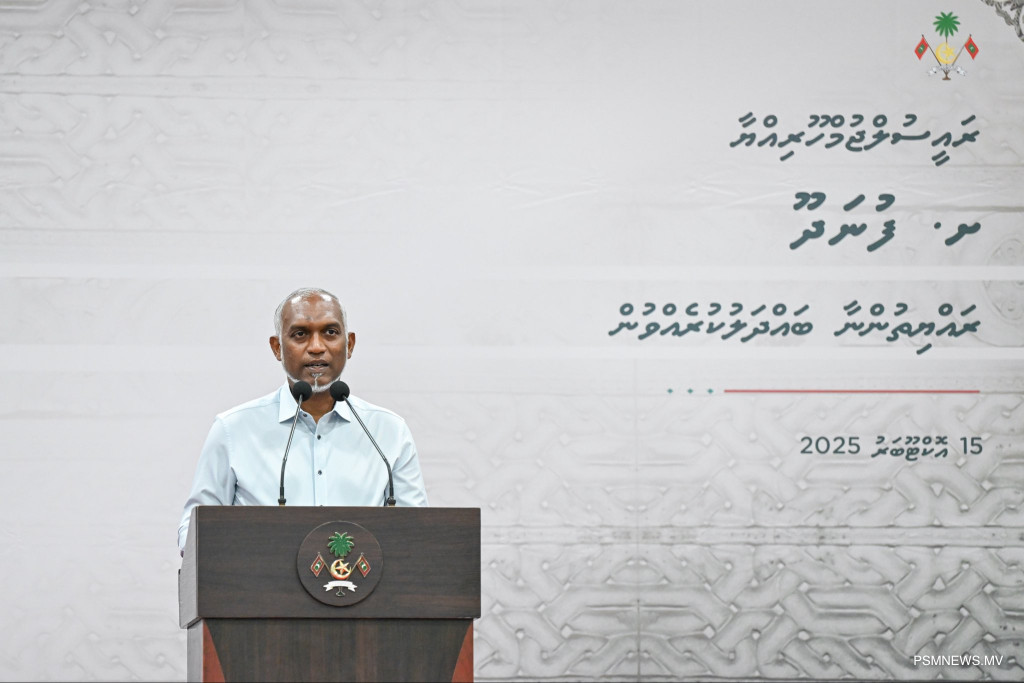
President Dr Mohamed Muizzu said on Wednesday that the government would face no difficulty in repaying the substantial foreign debt due next year, insisting that preparations were fully aligned with his administration’s economic strategy.
President links debt repayment to economic recovery
Addressing residents during a visit to Funadhoo in Shaviyani Atoll, President Muizzu linked the country’s ability to meet its obligations to the broader trajectory of national economic recovery. He said significant progress was being made to lift the country’s economy out of the downturn it had experienced.
“We are achieving successes, God willing, in lifting the Maldivian economy back onto a stable trajectory,” he said. On concerns over repayments, he added: “The process of managing the debt obligations due next year is not currently a cause for concern for us. There is absolutely no difficulty in any matter. In fact, all arrangements have been coordinated strictly in line with our strategic plan.”
Govt pledges to settle unpaid domestic bills
The president also pledged to resolve outstanding domestic financial obligations inherited from the previous administration. He said the government would pay unpaid bills owed to local companies and citizens.
“Within the upcoming week, we will finalise the disbursement of funds for all invoices that have successfully passed through due process, excluding those bills received during the last 30 days, along with settling the outstanding bills owed by the previous administration to thousands of citizens,” he said.
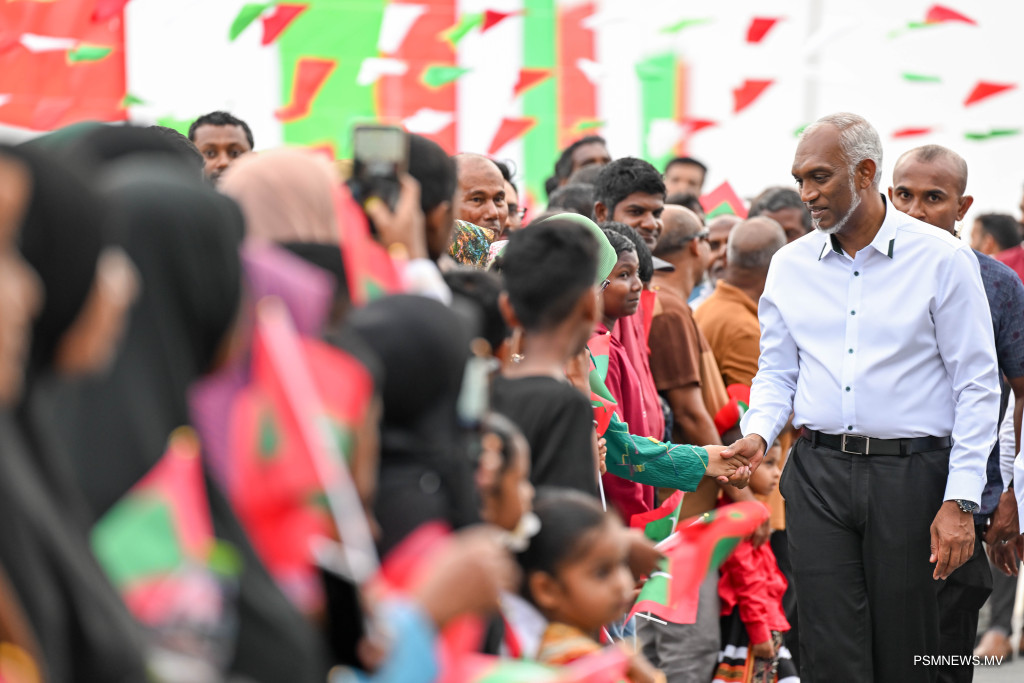
Health and education to receive equal budget allocations
Turning to fiscal policy, President Muizzu announced that the 2026 state budget would allocate USD 32.43 million each to the health and education sectors. He described the forthcoming budget as placing unprecedented emphasis on these areas, with new initiatives designed to promote sustained development.
In education, the government will focus on inclusive classrooms for students with disabilities in all schools, expand teacher training in special education, and broaden access to higher secondary education. Plans also include the establishment of a vocational high school next year.
In health, the administration intends to expand domestic capacity for medical tests and surgeries that currently require treatment abroad. The national health policy, he said, will prioritise both preventive and curative care, with targeted interventions in Malé City, regional hospitals, and priority islands.
Funadhoo seen as a model for development through airport expansion
President Muizzu presented Funadhoo as a model for consolidating population and development in the country, outlining extensive plans for infrastructure, housing and healthcare. Among the most prominent initiatives is the expansion of Funadhoo Airport, to be carried out in two phases.
The first phase will enable night flight operations through the installation of lighting systems, with completion expected by the end of this year. It also includes upgrades to the passenger terminal, such as a modern lounge, restaurant, improved facilities and baggage belts. The second phase involves technical work to expand the runway, which is already underway.
The project has been contracted to the state-owned Maldives Airport Company Limited (MACL) and was formally launched by Finance and Planning Minister Moosa Zameer during the president’s visit. Opened in 2020, Funadhoo Airport remains the only airport in Shaviyani Atoll, with a 1,200-metre runway, a 90-metre taxiway and an apron measuring 150 by 50 metres. Its expansion is considered vital for regional connectivity.
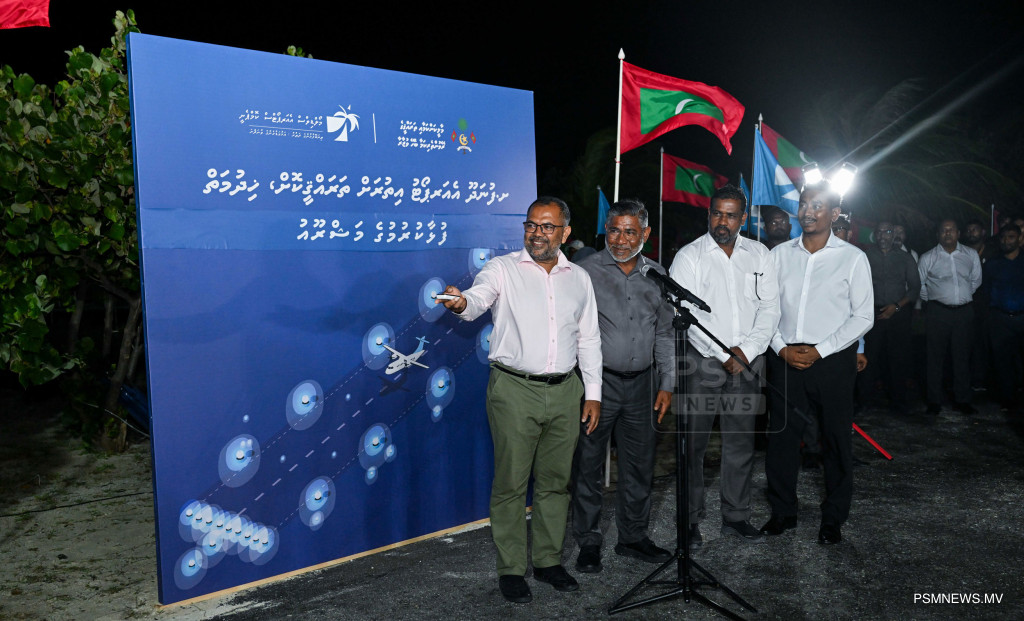
Hospital project revived as housing expansion follows land reclamation
The president also detailed plans for a 50-bed hospital in Funadhoo, a project previously stalled but now reassigned to the Maldives Transport and Contracting Company (MTCC). He stressed its national importance, noting it will be among the largest hospitals developed in the islands. Pending its completion, the existing hospital will see expanded services, including the introduction of speech therapy this year and the recruitment of additional specialists, with priority given to an ear, nose and throat doctor.
On housing, President Muizzu pledged the reclamation of 30 hectares of land, followed by the construction of 300 housing flats. Permits will also be granted for prepared land plots.
Education, sports and cultural projects announced as president vows close monitoring
In education, he announced the construction of an office block for Funadhoo School, with a contractor to be appointed this month and work commencing within the year. Plans also include the establishment of a junior college. For sports and recreation, a comprehensive indoor sports complex is planned, alongside new facilities for futsal and handball.
Additional projects include a new facility for the Maldives National University (MNU) and a modern Islamic Centre capable of accommodating 700 people. Road construction works will also be completed. President Muizzu also reaffirming his commitment to closely monitoring the progress of all development projects in Funadhoo, framing them as integral to both local and national advancement.
Education reforms announced with human development at the core
President Muizzu also announced sweeping reforms to the education sector during his meeting with residents of Funadhoo, pledging substantial resources in the upcoming year’s budget to establish inclusive learning environments and expand higher secondary education across the country.
He highlighted two major projects set to begin next year, underscoring that the government views human development as a central pillar of national progress. The initiatives, he said, are intended to address long-standing systemic shortcomings in access and specialisation within the school system.
Inclusive classrooms to be introduced in all schools
A central element of the reforms is the creation of inclusive classrooms in all schools across the country, a project to be included in the national budget for the coming year. President Muizzu acknowledged that the education sector has not yet succeeded in building a system capable of providing adequate support for children with special needs.
He stressed the importance of ensuring that children requiring special assistance can access schooling within their own islands. The initiative, he said, represents a new, dedicated project that will receive unprecedented attention in the next year’s budget.
“We are including a project in the budget for the coming year, dedicating unprecedented attention to establish inclusive classrooms in all schools,” President Muizzu stated. “Furthermore, a training programme is already underway to develop the necessary teaching staff for this initiative, resulting in 80 teachers having already been trained. Additional teachers will be trained in the future.”
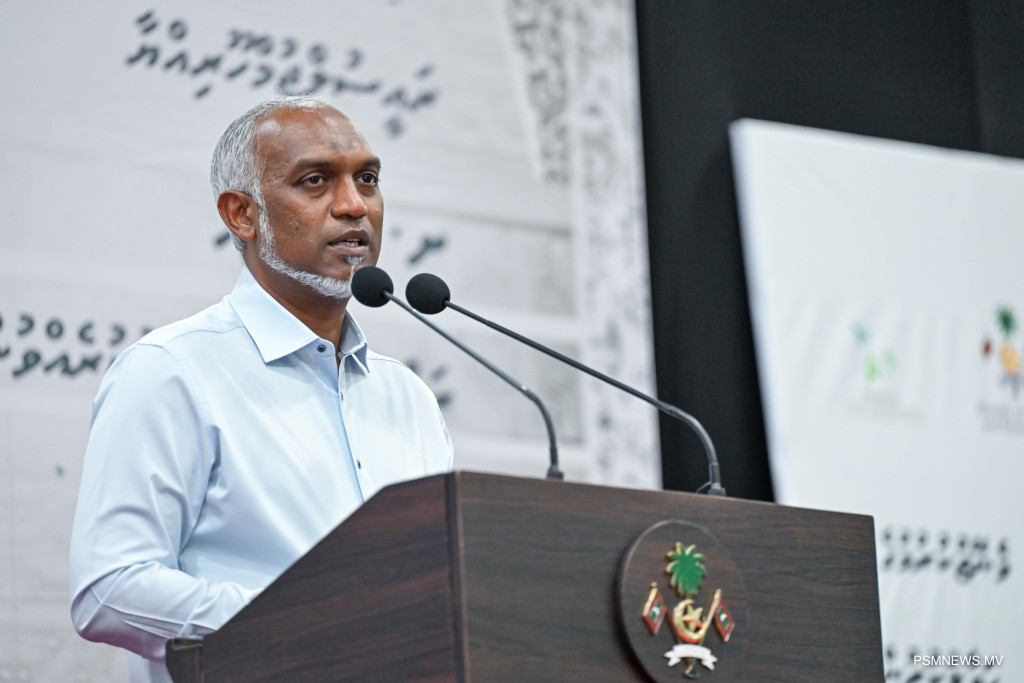
Govt seeks to raise A-level participation rates
The government is also working to increase the participation rate of students pursuing higher secondary qualifications, addressing what President Muizzu described as a significant challenge within the education sector.
He noted that when the current administration assumed office, the national ratio of students studying for A-levels stood at 40 percent. By comparison, he said, educationally advanced nations report ratios of around 65 percent. The government’s work to close this gap has already shown results, with the proportion of A-level students rising to 50 percent.
New policies aim to expand access to specialised fields
To further narrow the disparity, new policies are being developed through a dedicated project. The aim, President Muizzu said, is to ensure that all students have the opportunity to pursue higher secondary studies in the fields they wish to advance in.
“Therefore, we are working through newly initiated projects to ensure all students have the opportunity to pursue A-level studies in the specific field they wish to advance in. This is a matter of great importance,” he elaborated.
Vocational training and regional expansion as part of wider education reforms
“I consistently emphasize our goal to deliver development in all sectors. Human development, specifically, is profoundly important. We are currently constructing a vocational high school in the Malé area. Similarly, efforts are underway to expand A-level opportunities across all regions of the Maldives next year,” the president said.
The president added that the government is engaged in extensive efforts to strengthen the education sector more broadly. These include initiating new projects, ensuring that schools in the islands receive the necessary resources, completing development works, and resuming projects that had previously stalled.
Funadhoo projects formalised, MTCC awarded bulk of contracts
The government formalised contracts for eight major infrastructure and development projects in Funadhoo during President Muizzu’s visit, covering education, health, religious facilities and core civil infrastructure. The initiative is intended to strengthen the island’s essential services, including the establishment of a Maldives National University (MNU) campus and an Islamic Centre.
The Maldives Transport and Contracting Company (MTCC) emerged as the primary contractor, securing agreements for several critical projects. These include the establishment of the MNU campus, the development and repair of the island’s harbour, road construction and development, and the construction of a new 50‑bed building for Funadhoo Hospital.
The contract for the Islamic Centre was awarded to Noorahdheen Investment. The Maldives Airports Company Limited (MACL) received the contract to develop a sports complex, while Waste Management Corporation Limited (WAMCO) was tasked with managing waste operations on the island.
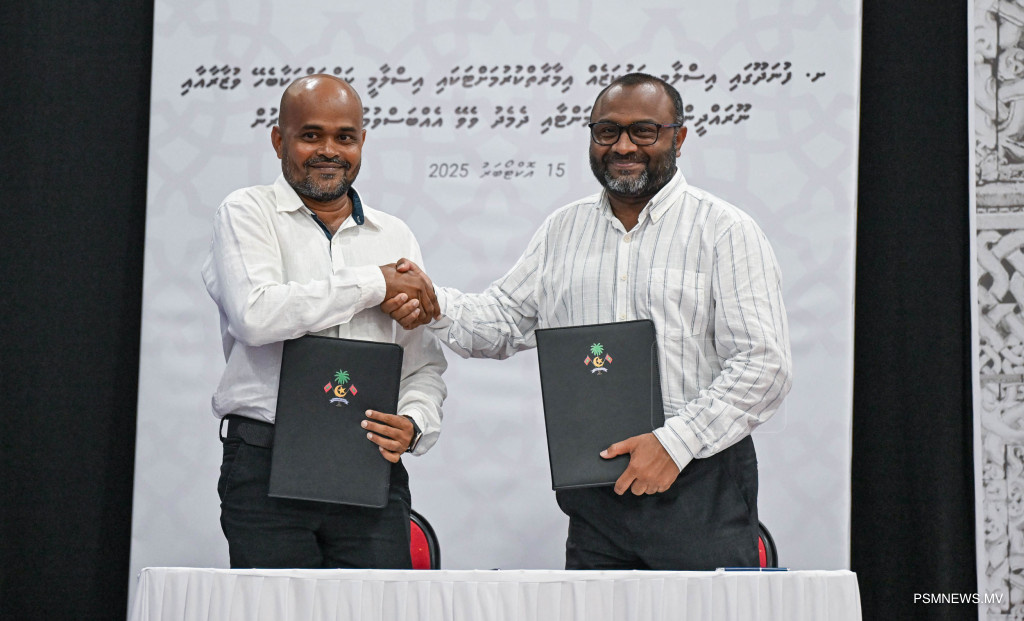
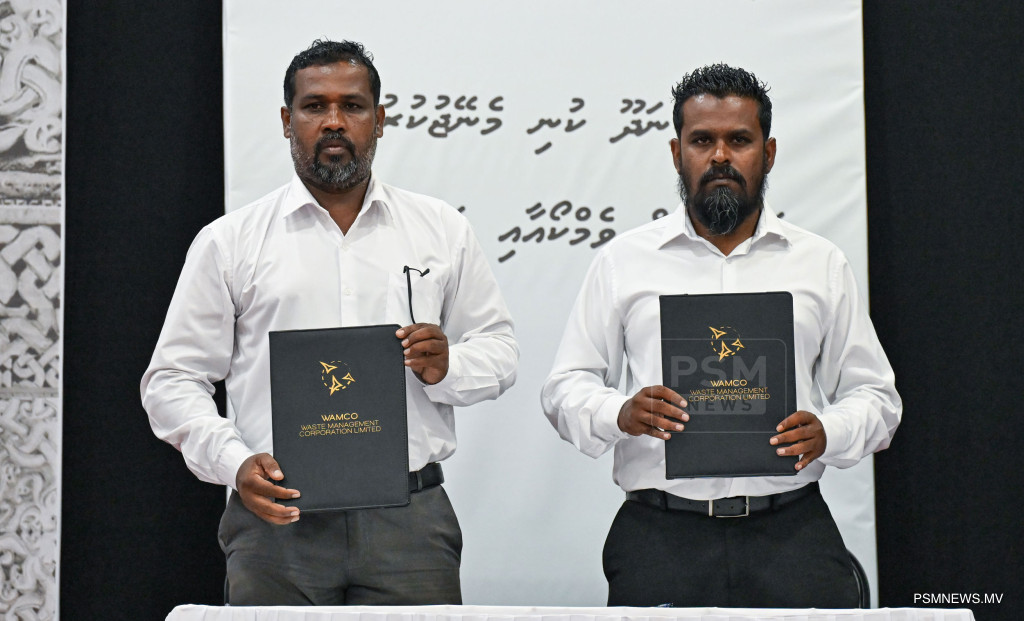
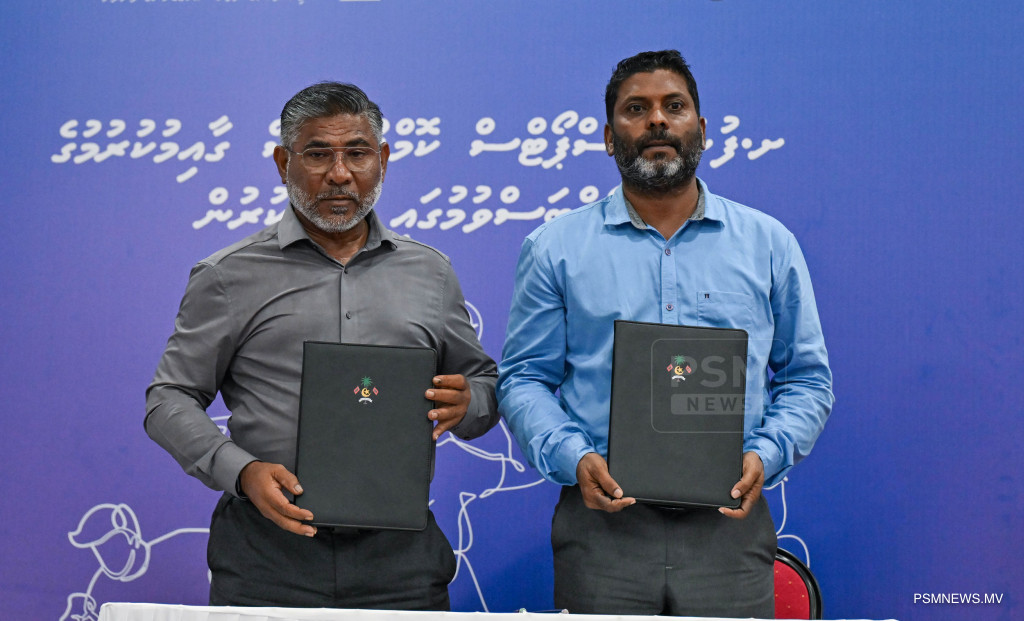
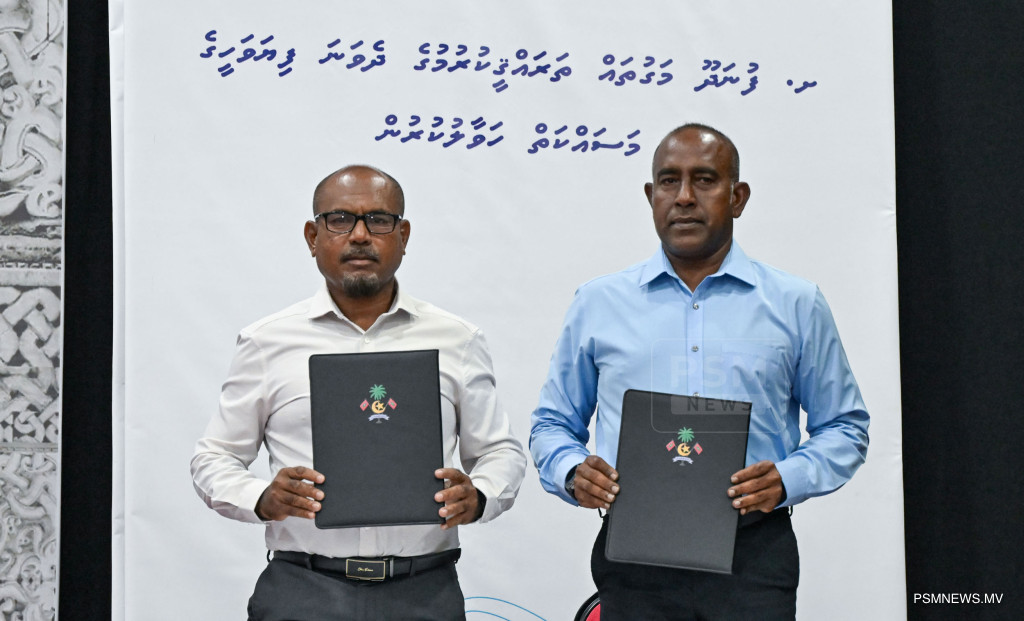
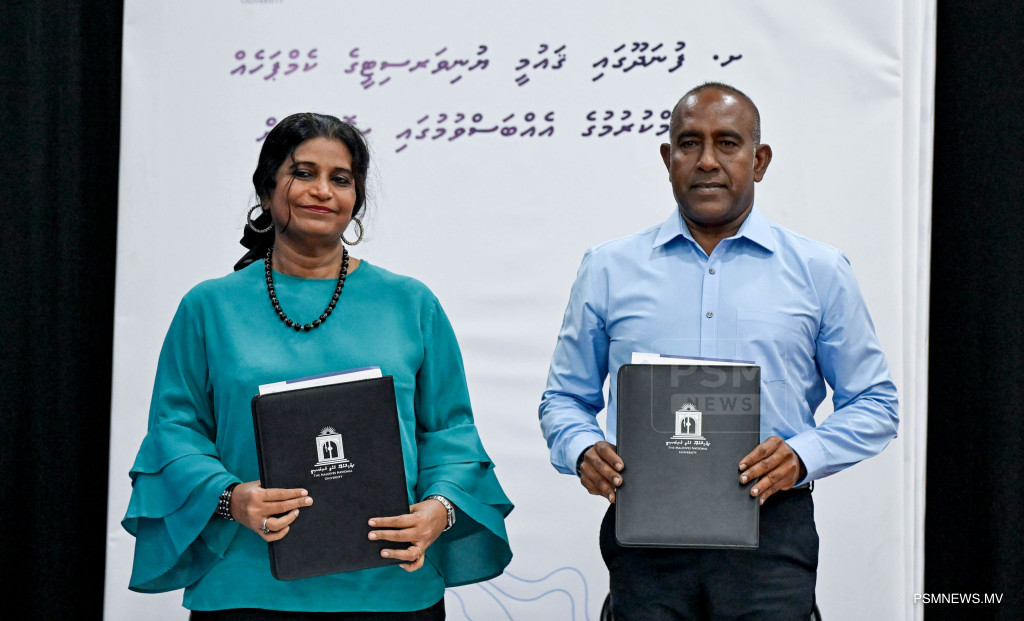
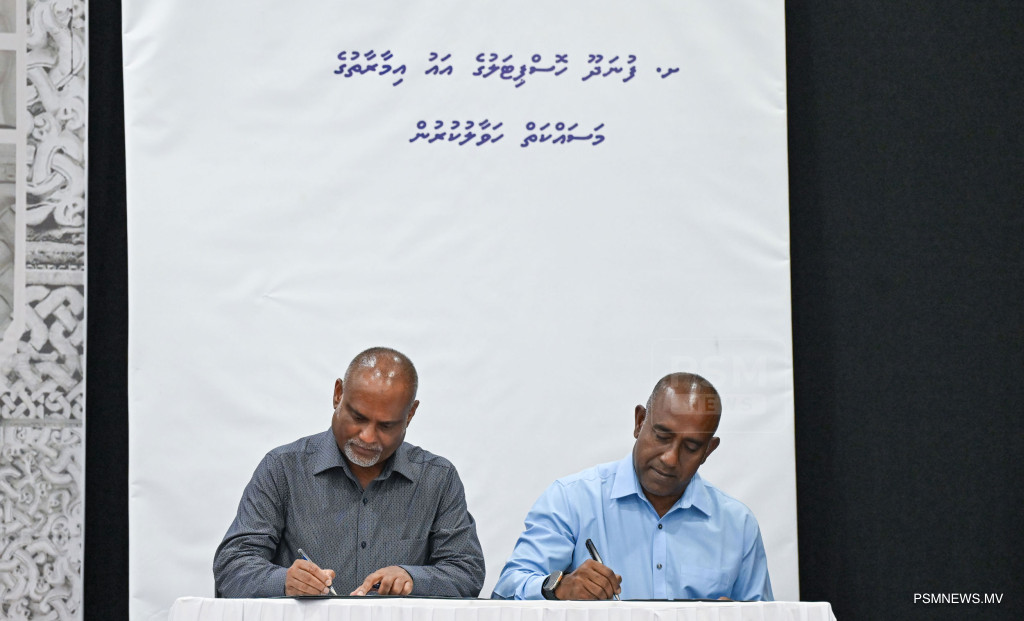
Environmental initiatives introduced
Alongside the signing of contracts, the government advanced environmental initiatives. In line with its pledge to establish a nature park in every atoll, the concept for the protected Farukolhu Nature Park was introduced. Uniforms were also handed over to Rangers appointed to manage and maintain the park.
Council meeting underscores local priorities
President Muizzu met with members of the Funadhoo Island Council, the Women’s Development Committee and heads of local institutions to discuss the island’s development priorities. Council members appealed for the implementation of a housing scheme under the administration’s decentralisation and population consolidation policies, as well as the adoption of regulations for issuing land to eligible recipients. The Women’s Development Committee requested facilities for futsal, handball and volleyball, along with the creation of a beach area for senior citizens.
Representatives from the island’s hospital called for expanded healthcare services and the introduction of specialist care, while school officials highlighted the shortage of administrative space.
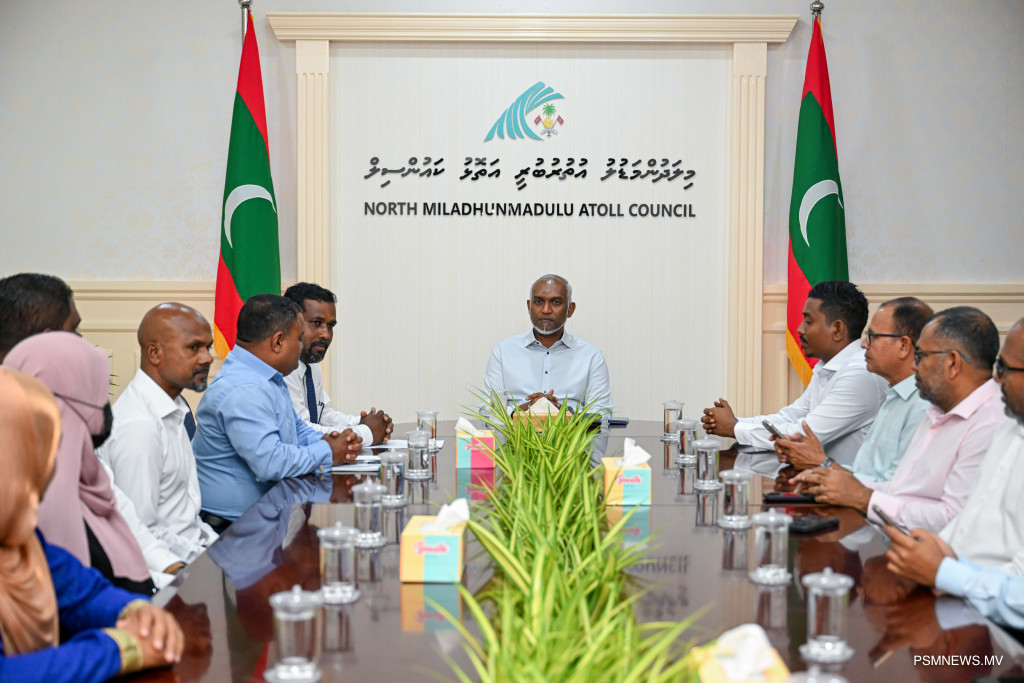
Ice plant inaugurated to support fisheries
In a move to strengthen the economic foundations of the fishing sector, the government inaugurated a 30‑tonne capacity ice plant in Funadhoo during the president’s visit. The facility is designed to address long‑standing challenges faced by fishermen in securing adequate ice supplies. It has the capacity to produce 30 tonnes of ice daily and includes storage facilities capable of holding up to 50 tonnes at any given time.
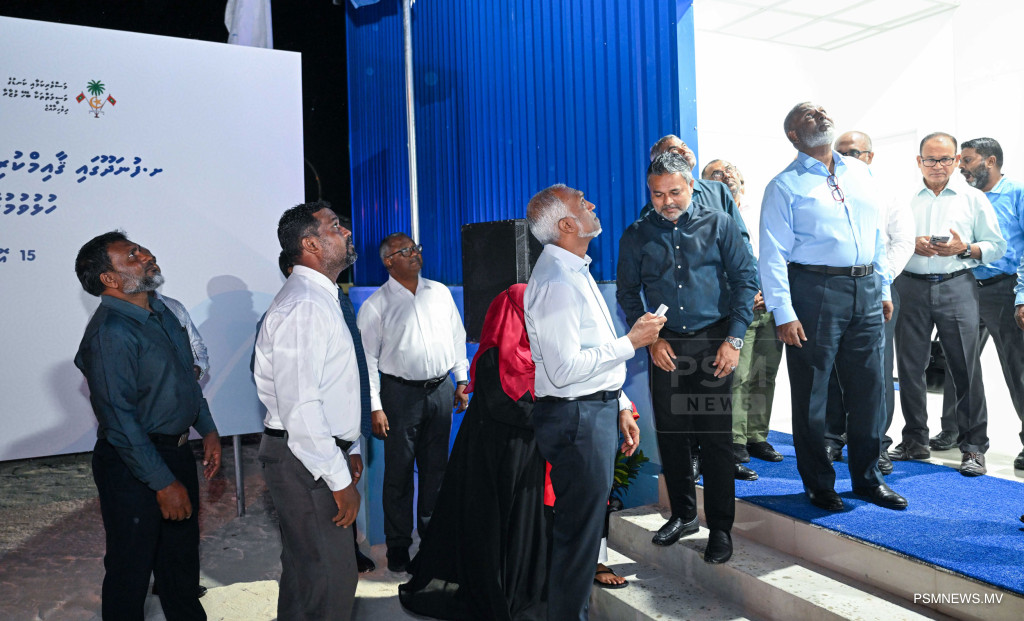
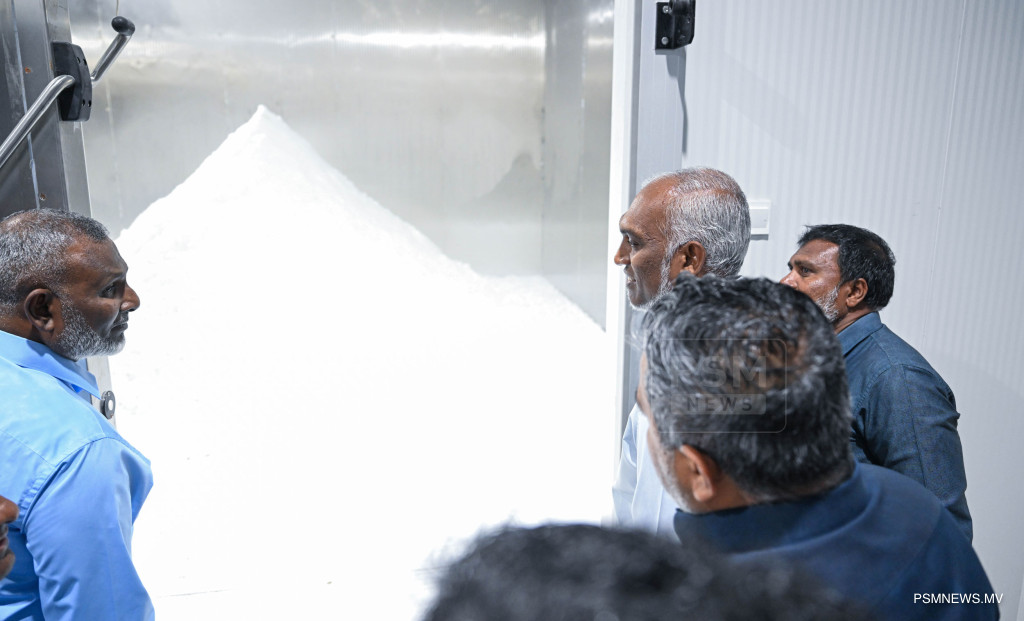
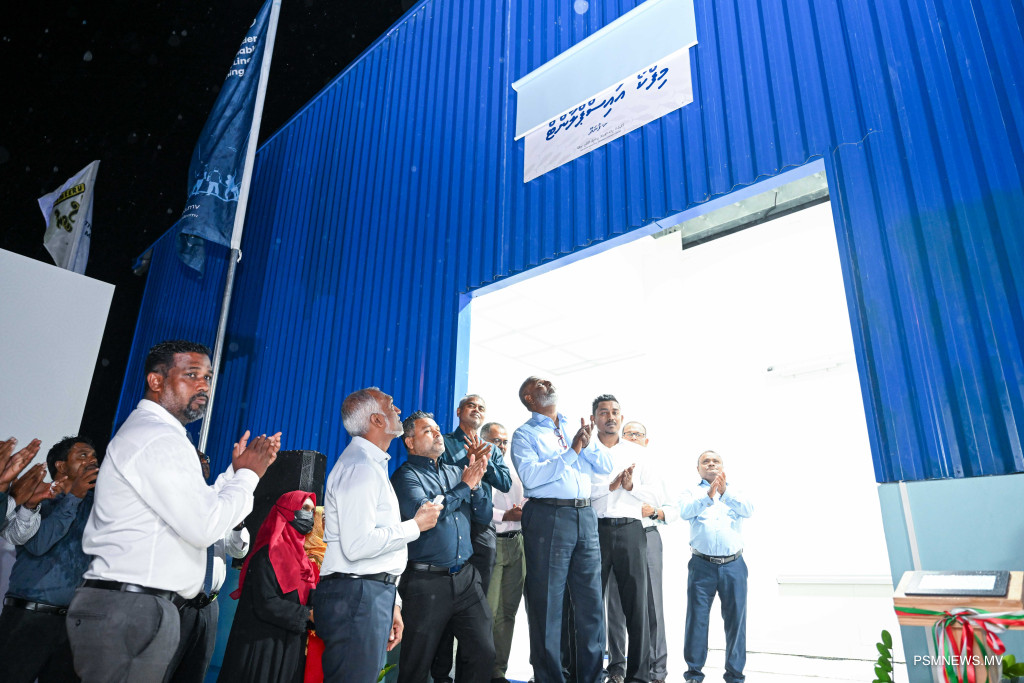
Government officials said the project is expected to deliver dual economic benefits: reducing the frequency of trips fishermen must make solely to acquire ice, and lowering fuel expenses. The reduction in fuel costs is regarded as a key outcome of the government’s infrastructure programme to support the fisheries sector.
